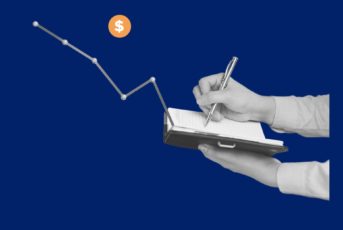What is the Dow Jones Industrial Average?
The Dow Jones Industrial Average, commonly referred to as the Dow, is a major US index used to measure the overall health of the US stock market and the economy. The Dow was created by Charles Dow and Edward Jones as a way to track the performance of the largest companies at that time. It covers all industries except for transportation and utilities, because those industries have their own indexes.
Why is the DJIA important?
Launched on May 26, 1896, the Dow is one of the oldest stock indexes in the world, second only to the Dow Jones Transportation Average which was created in 1884. While it is not the best stock index, the Dow is very important because of its history. The Dow has experienced many different business cycles, wars, recessions, depressions, and yes pandemics (Spanish and Asian flus, polio, AIDs, H1N1, and most recently Covid). This is important because it allows us and investors to study the market reactions to various world and US events, both business and nonbusiness related.
Is the Dow a good index?
All experienced investors agree that the Dow is not a useful index to measure the current health of the economy because it is made up of only 30 stocks, but it is still a relevant index because of its history. While those 30 stocks are the largest stocks in the US, they by no means represent the entire economy which has close to 4,000 stocks. By contract, the S&P 500 is another popular US index that represents the largest 500 companies in the US. Another reason why the Dow is not a useful index is because it is not used as a benchmark by professional money managers. The S&P 500 index is a very widely used benchmark and used by professional money managers to compare themselves to.
How is the DJIA calculated?
The Dow is calculated daily by adding up all 30 stocks in the index and divided by a divisor called the Dow Divisor, which is adjusted for corporate actions, such as splits, spinoff, etc. The Dow is a price-weighted index which means the stock with the highest price has the greatest impact on the index. For example, United Health current stock price of $356 is the highest among all the Dow components which means United Health currently has the greatest influence in the price of the Dow. Most recently Apple’s influence on the movement of the Dow was diminished when Apple split its stock price. By contract, the S&P 500 is a market-weighted index which means the companies with the highest market value (total value of the company) have the greatest impact on the index.
How to invest in the Dow Jones Industrial Average
Before the invention of the index fund in 1976 by Jack Bogle (founder of Vanguard), the only way to invest in the Dow was to buy all the 30 stocks, which would have been very pricey. Now there are many ways to invest in the Dow with very little capital. The easiest is to buy an Exchange Traded Fund (ETF) which tracks the Dow. The ticker symbol for the largest Dow ETF is DIA, also known as diamonds. Of course investors could also use futures contracts to invest in the Dow, but futures are for more experienced investors.
How are companies added and removed from the DJIA?
While there is no set or published criteria for adding or removing a stock from the Dow, the Dow is made up of only large venerable companies. A committee decides whether to add/remove a company from the Dow based on its size and influence on the economy. For example, the DJIA recently replaced Exxon, Pfizer, and Raytheon, all large companies, with Salesforce, Amgen, and Honeywell. Ironically, Honeywell was once owned by General Electric (GE), which was an original member of the Dow dating back to 1896 before it was replaced with Walgreens. Honeywell was split-up from GE in 2017. To learn more about split-ups and how they work, read our article or watch our YouTube Video.
Looking for an independent fiduciary financial advisor who can advise you on investments, retirement, real estate, alternative assets, and taxes? Contact ACap Advisors & Accountants to schedule a free initial consultation. Our clients include individuals, small businesses, entrepreneurs, and anyone serious about saving and investing for their future.









